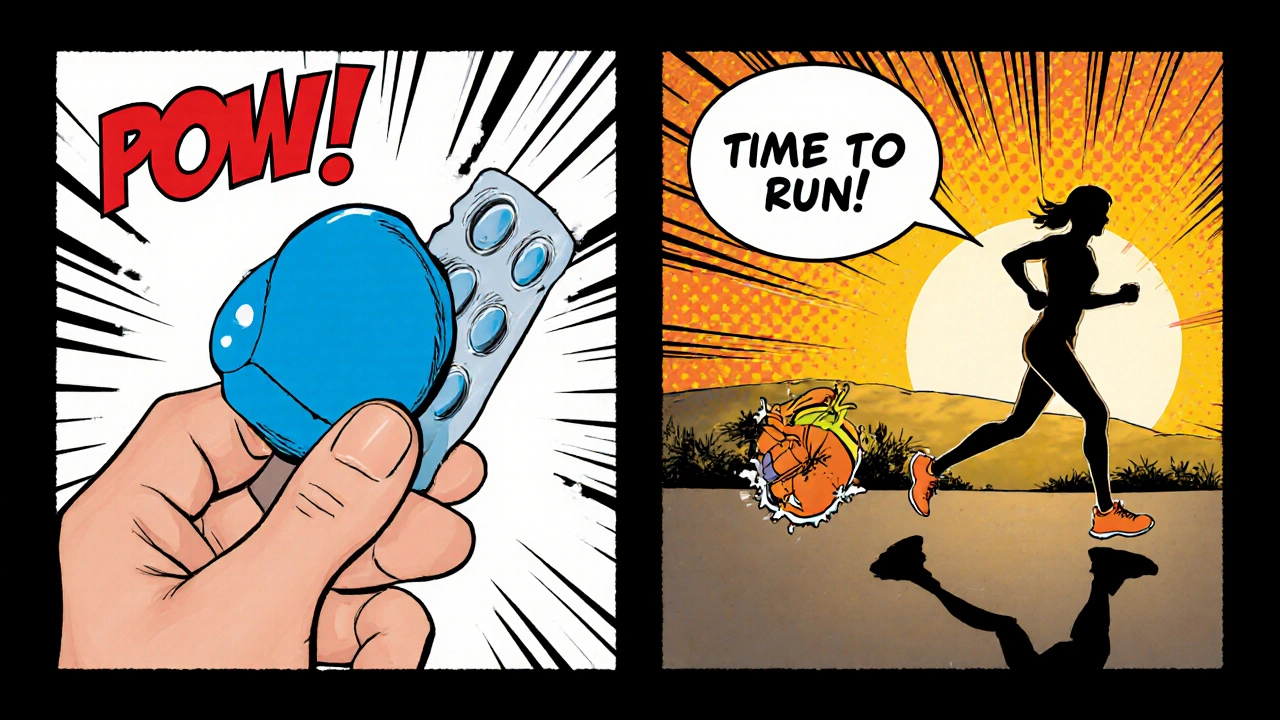Acamprosate: What It Is, How It Works, and What You Need to Know
When someone stops drinking alcohol, the brain struggles to rebalance itself—that’s where acamprosate, a prescription medication used to help maintain abstinence in people recovering from alcohol dependence. Also known as Campral, it doesn’t reduce cravings right away, but it helps stabilize brain chemistry over time so you’re less likely to relapse. Unlike some other treatments, acamprosate isn’t addictive, doesn’t cause sedation, and isn’t used to manage withdrawal symptoms. Instead, it works behind the scenes, targeting the glutamate and GABA systems that get thrown out of whack by long-term alcohol use.
Acamprosate is most effective when used alongside counseling, support groups, or therapy. It’s not a magic pill—it’s a tool. People who take it consistently, along with a solid recovery plan, report feeling more emotionally steady and less pulled toward drinking. It’s often prescribed after detox, once the body has cleared alcohol and acute withdrawal symptoms have passed. You don’t feel anything special when you take it. No rush, no buzz. Just quiet, steady support.
It’s not for everyone. If you have serious kidney problems, your doctor might avoid acamprosate. It’s usually taken three times a day, with or without food, and sticking to the schedule matters. Missing doses can reduce its effect. Many people wonder how long they need to take it. Most stay on it for at least six months to a year, sometimes longer. Recovery isn’t a sprint—it’s a daily choice, and acamprosate helps make those choices easier.
What you’ll find in the posts below aren’t just drug facts. They’re real stories about managing health after addiction. You’ll see how acamprosate fits into broader conversations about alcohol dependence, a chronic condition characterized by compulsive drinking despite negative consequences. Also known as alcohol use disorder, it affects millions, and treatment needs to be personal. You’ll also find clear comparisons between acamprosate and other medications like naltrexone and disulfiram, so you understand the trade-offs. There are posts about alcohol withdrawal, the physical and mental symptoms that occur when someone who drinks heavily suddenly stops. Also known as detox syndrome, it can be dangerous without medical oversight. And you’ll see how these issues connect to everyday health—like sleep, anxiety, and depression—that often come with recovery.
These aren’t abstract medical articles. They’re written for people who are trying to rebuild their lives. Whether you’re asking for yourself, a loved one, or just trying to understand, the posts below give you the no-fluff, straight-to-the-point info you need. You’ll learn what works, what doesn’t, and how to talk to your doctor about the best path forward.

